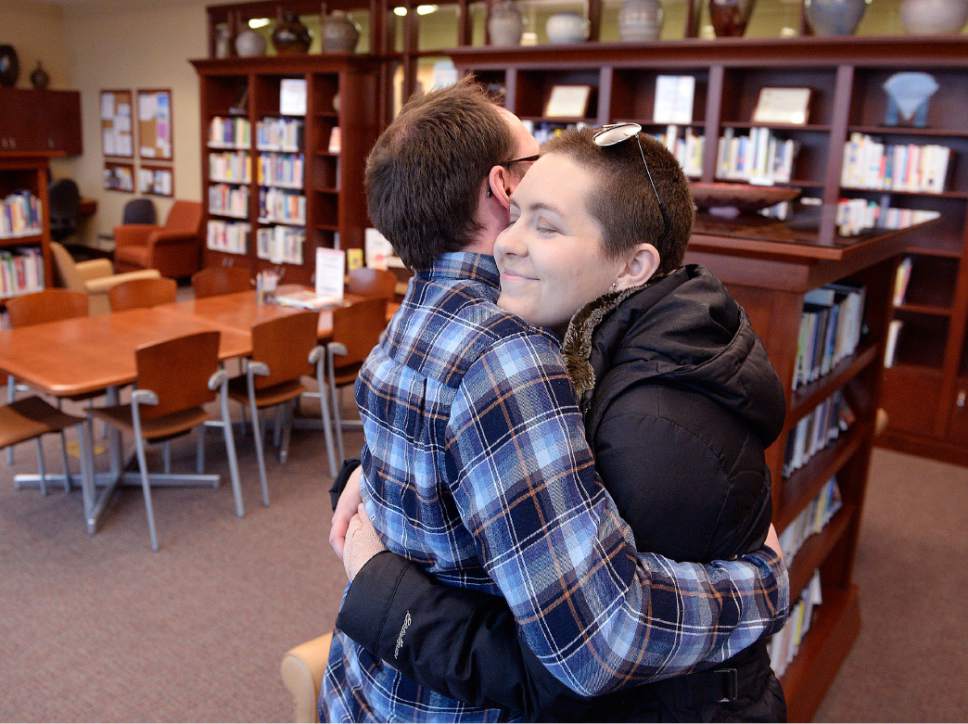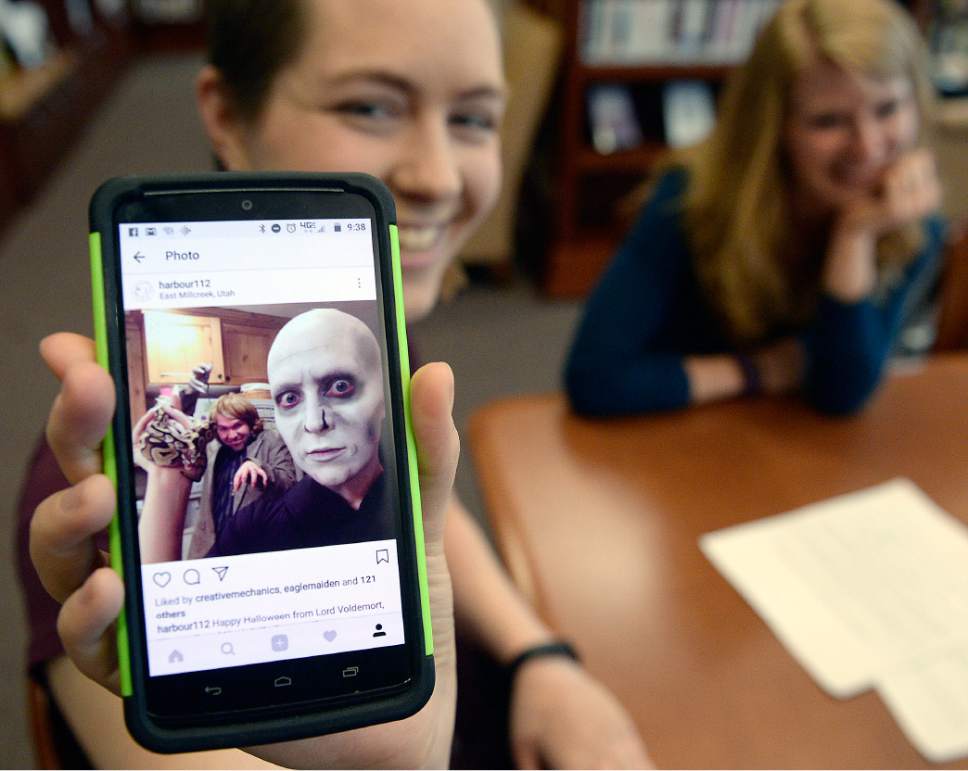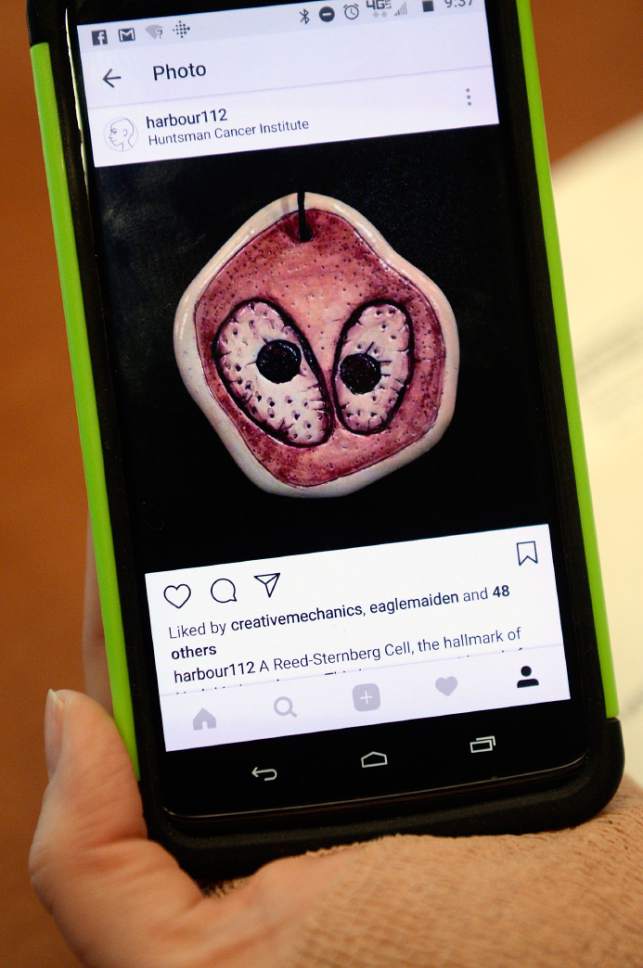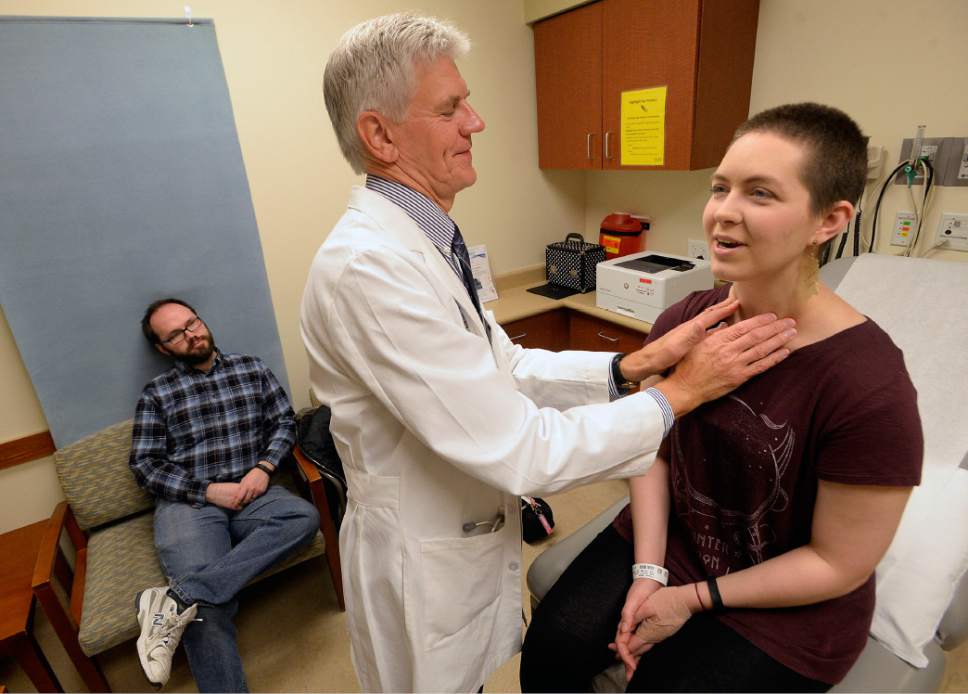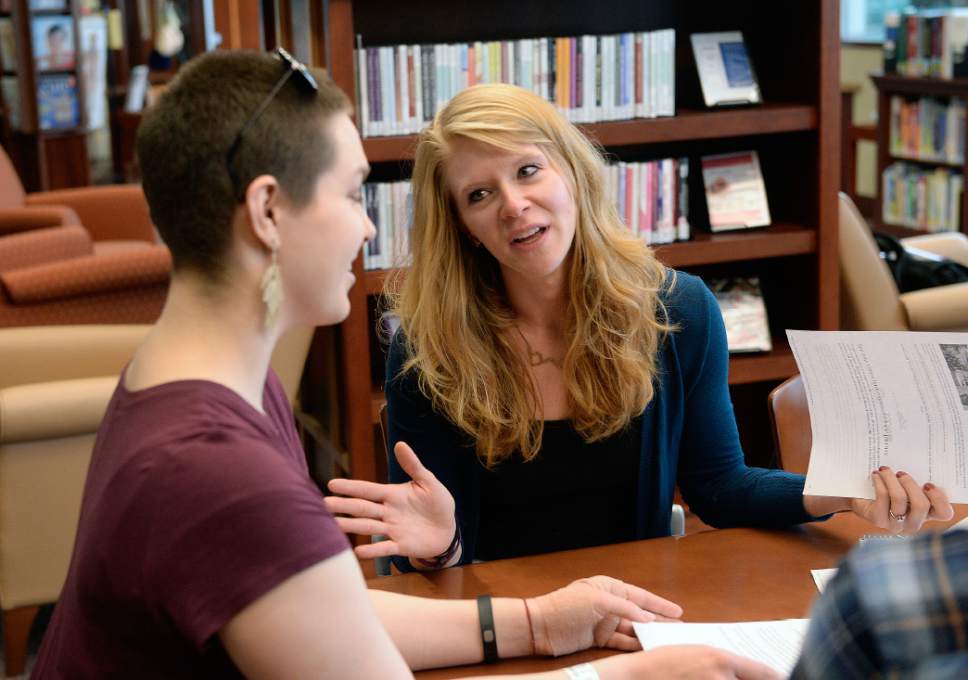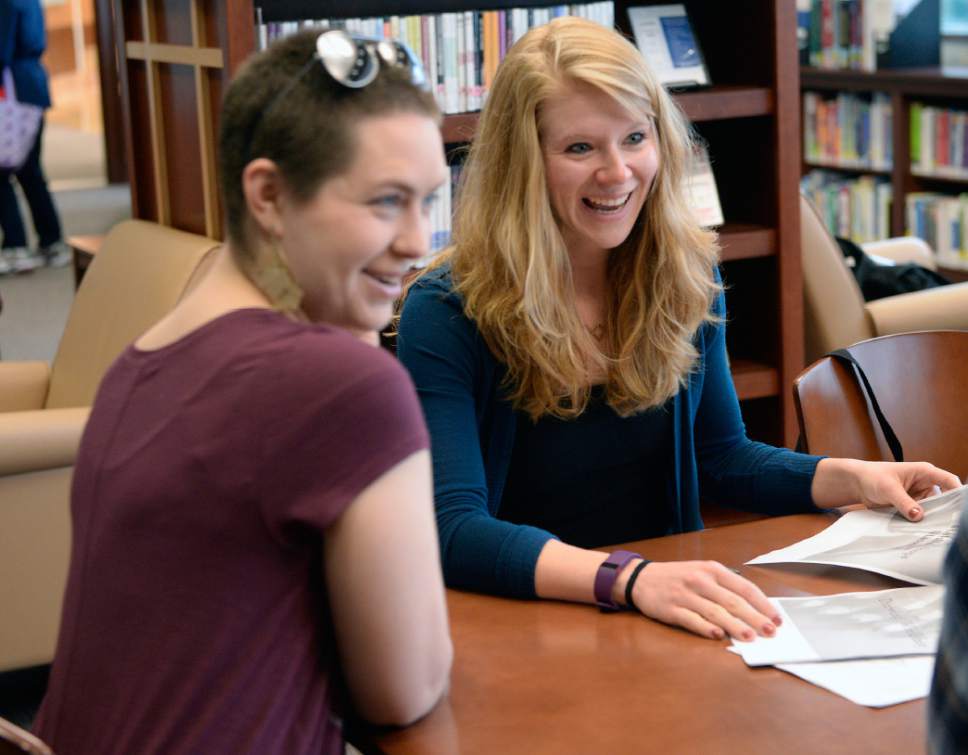This is an archived article that was published on sltrib.com in 2017, and information in the article may be outdated. It is provided only for personal research purposes and may not be reprinted.
Marina Pimentel is a clear example of how life goes on — even after hearing you have cancer.
Since being diagnosed last June and treated for Hodgkin's lymphoma, Pimentel started a new job, moved her mother to Utah, traversed the treacherous waters of health insurance and watched her little sister get married in their native Boston.
Not an atypical year for a 26-year-old, Pimentel pointed out. She just happened to have cancer. But she also has someone assigned to help.
"I really could have used you back when this all started," Pimentel joked to Sara Salmon, patient navigator for Huntsman Cancer Institute and Intermountain Healthcare's new Adolescent and Young Adult Cancer Care Program.
The free collaborative program hopes to target the needs of hundreds of adolescents and young adults ages 15 to 39 in Utah diagnosed with cancer each year. Patients are connected to Salmon through their doctors for information, resources, research or just answers to questions about anything from insurance and treatment costs to therapy options and fertility.
The Cancer Care program is the brainchild of Lor Randall, director of Sarcoma Services for HCI. He said he observed for more than a decade the life challenges that young adult and adolescent patients had to face beyond their cancer.
Little research has been done on cancer patients in this age group, but rapid transition between life stages — while coping with major illness — is at the core of their challenges, Randall said. Many are just entering the workforce, which often adds complexity to issues such as health benefits, paying for treatment and getting paid time off.
Cancer Care, Randall said, is now aimed at improving the treatment experiences of young adults; raise awareness about their needs; and pursue research that might inform better health outcomes for patients in the age group.
"We saw a great opportunity to partner with our colleagues across the aisle over at Intermountain Healthcare to build something bigger than either institution," Randall said. "The sky is the limit for this program."
Because adolescent and young adult patients are often at different life stages when they are first diagnosed, the program focuses on helping them build their own support networks and maintaining their regular lives as much as possible, said Carolyn Reynolds, co-director of the program at Intermountain Healthcare.
Salmon began training as a patient navigator in September and started seeing patients in January.
She and Pimentel communicate about three or four times monthly via email or text, meeting in person when they can. Salmon advised Pimentel after her chemotherapy treatments and their rapport is that of close friends or even sisters.
"The goal is: Figure out what is useful for each patient," Salmon said. "I am here to connect them with the right resources so that they don't feel completely alone and isolated."
Pimentel held husband Kent's hand one recent morning as they braced to hear results of her first post-chemotherapy checkup. Those tests were clear, it turned out, but she said she knew her recovery was far from over.
Pimentel will return to the hospital every three months for checkups, then every six months, then once a year if no symptoms resurface. She started back to work full time about five weeks ago and, with Salmon's help, is starting to connect with survivors of Hodgkin's lymphoma, which develops in the body's lymphatic system.
Pimentel and her husband talk about how Salmon is like a mother, with her gentle reminders and regular check-ins.
"She answered the questions I had before I knew I even had them," Pimentel said. "She was and is our go-to."
Twitter: @kelgiffo


